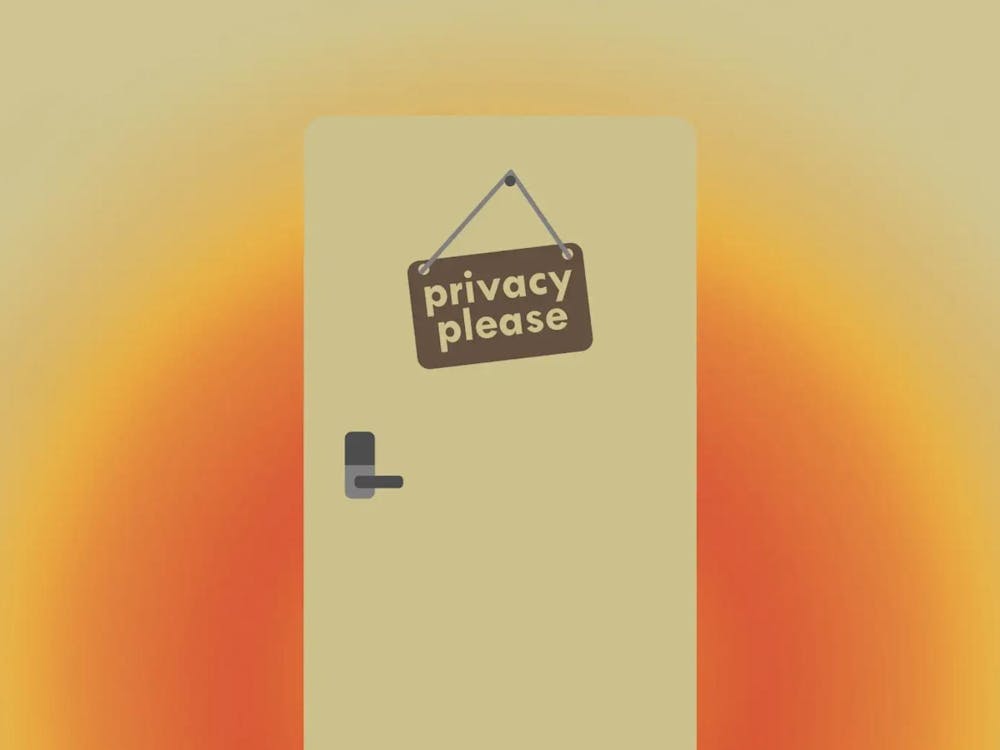The man had lost his marbles and so he came to my store, the museum shop at the National Museum of American History, to collect them. Scooping up handfuls of the glass pieces of perfection, the prisms of color and clarity, he let them fall through his fingers, clanking back into the bins of the marble display.
I spotted him from across the store and decided to approach. "How are you doing today?" I asked, determined to fulfill my summer role as an ambassador of the Smithsonian. Without taking his eyes off his newfound treasure, he reached into his pocket and handed me a business card. An odd response to a typical question, but I accepted his gift anyway. When I flipped the card over, I expected to see a company insignia and lists of work phone numbers, cell phone numbers, fax numbers and e-mail addresses. Instead, a crude computer drawing of a large, yellow smiley face shone back at me.
"That's She," he said, retreating to his marble inspection.
I let She soak in for a second: the potato-shaped mouth, the thick black outline of her face, the intricate yet sloppy scarf falling from her head. Then the words, "But why..." stumbled out.
A low grumble came from the mouth of the gift-giver as he peered up and said, "Put She somewhere where you'll see her often." A twitch caught the left corner of his lips and I noticed his missing two front teeth. "Eventually you'll come to depend on She to be there watching over you. She'll become part of her surroundings."
I wanted to be happy, to revel in a moment when a stranger reached out to me, tried to make a connection and brighten my day. I wanted to shout, "There is kindness left in this world!" But for some reason, an overwhelming urge to run, tear up She and wash my hands began to creep through to my fingertips.
Before I could give She a chance, the scraggly man with his beer gut hanging out from under his paint-splattered, holy shirt continued. "Sometimes when you look at She long enough, She's face disappears and all that's left are her looming eyes, like those of the Cheshire Cat."
He's being generous, I chanted in my head. No one would go out of their way to hand out smiley faces if they meant harm. If he wanted to put some kind of curse on me, he wouldn't use a smiley face as his weapon, right?
The man's glasses where sliding off his sweaty nose, but he did not seem to notice. A sigh slid between the gap where his two front teeth should be as he examined a glistening red marble.
"Well, how long have you had...known...did you draw She?" I searched.
"I dabble in art." Sigh. "One day, about four years ago, She came to me." He grunted to bend over and rescue a dropped marble. "But She has no age. She has been around forever."
I just stared.
"She is not of this universe. But She was around when Caesar ruled. She walked with the Romans, you know."
His speech was as deliberate as his inspection of the swirls of color inside the glass spheres.
"Well, what is She for? What does She do?" I continued probing.
"She's a bus driver," he said seriously. "A DJ, a teacher, a fireman, a machine gunner..." He smiled at me for the first time, pleased at his own storytelling.
I looked around the store to see if anyone else noticed me talking to the scruffy, gray-haired man, or if this conversation was as illusionary as She herself. I could not grasp the moment or accept its reality, but I knew this man was dead serious.
My logical mind ached for me to walk away, as the customer no longer needed my service. But my curiosity to divulge the man's purpose in giving me this eerie sketch, a smiley face with an exotic trail of colors drooping from its scalp, cemented me. Plus, I kinda wanted to play along.
"So," I started, "how many people have met She?"
"Oh, a couple a day." Then, another sly smile stretched across his chapped mouth. "I copyrighted the design."
"Really? Well, why do you do it? I mean, why do you share She with other people?"
He smacked his tongue on the roof of his mouth and tied the drawstring to his felt marble bag, which he had filled to the brim.
"It's a way of meeting people without having any kind of obligation." He breathed between each word, as though his breaths were numbered and he had to savor each one. He reached for his money and the cash register chimed. "We don't have to have anything in common."
He stuffed his wallet in his back pocket, turned and simply shuffled away. The drawer lingered open as did my slack jaw. The man had disappeared from my store so quickly I wondered if he had ever really been there.
But my hand cradled the piece of evidence: She. Unlike most customers who come to the Smithsonian museum shop and eagerly tell me where they are visiting D.C. from and what exhibits they saw that day, this man had only offered confusion and a type of pagan god he had instructed to "watch over me."
I warily told my co-workers about the "nice man by the marble display who gave me a smiley face," but their nervous expressions mirrored my gut feeling and I shoved She under the stack of hundred dollar bills in my register. I couldn't throw She away but I couldn't look at her either. Why did I have such an aversion to a customer who handed me more than a signed credit card receipt?
I went to dabble in the marble display to see if the man had left any other clue. He had handed me an uplifting symbol, the universal symbol of happiness, and I felt threatened. He had broken down our common barriers, and it made me uneasy.
With the rounded stones clenched in my fist, I remembered something John Muir once wrote: "Most people are on the world, not in it - have no conscious sympathy or relationship to anything about them - undiffused, separate, and rigidly alone like marbles of polished stone, touching but separate"




